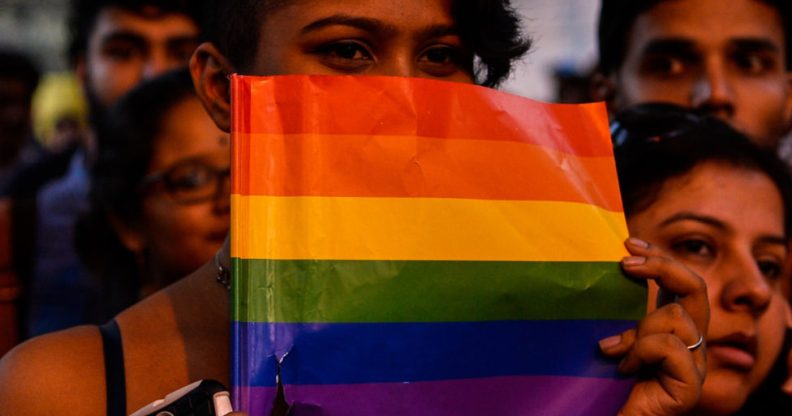Indian city encouraged trans people to apply for police force. Instead of being given jobs, they were outed

Forty young transgender folk in Chhattisgarh, a state in central India, left their jobs and homes when the local government announced a recruitment drive for trans police officers.
Many of the applicants had previously been harassed or tortured by the police – but the promise of work, respect and escaping the fate of many trans people in India meant they still sought to join the police.
They hoped that wearing a police uniform would give them a better future, because many trans people in India rely on begging and sex work to survive in a society that still heavily discriminates against trans people.
“Wherever we go, there will be pride,” Rakesh Sori, 26, one of the recruits, told The New York Times. “Those who do not talk to us will want to talk to us.”
Becoming a police officer is desirable even to people in India who aren’t trans – last year, more than 380,000 people applied for 2,259 police jobs.
But despite months of training and study, none of the trans recruits have joined the force. Exam results have been delayed, and local LGBT+ activists have accused the police of political infighting and mismanagement.
This delay has had bad consequences for the trans recruits, many of whom were inadvertently outed to their families when local news media reported on the trans recruitment driver and who now cannot return to their homes.
Some were assaulted by relatives and others fired from jobs when they were outed as trans.
“Despite putting in so much, we have nothing,” said Tanushree Sahu, 23, another transgender recruit.
Trans activist Vidhya Rajput led the push to diversify Chhattisgarh’s police force in 2017.
She runs a trans-rights advocacy group and emphasised that police jobs were a “step towards dignity” for trans people.
But now that the jobs haven’t materialised and the recruits have been left in a perilous limbo, she blames herself.
“I was the one who got them to dream, and I am responsible,” she said. “It was not just a police test, or getting a job. They were looking at a different future.”
But the group have made a pact: if their exam results are thrown out, they will resit the tests.

